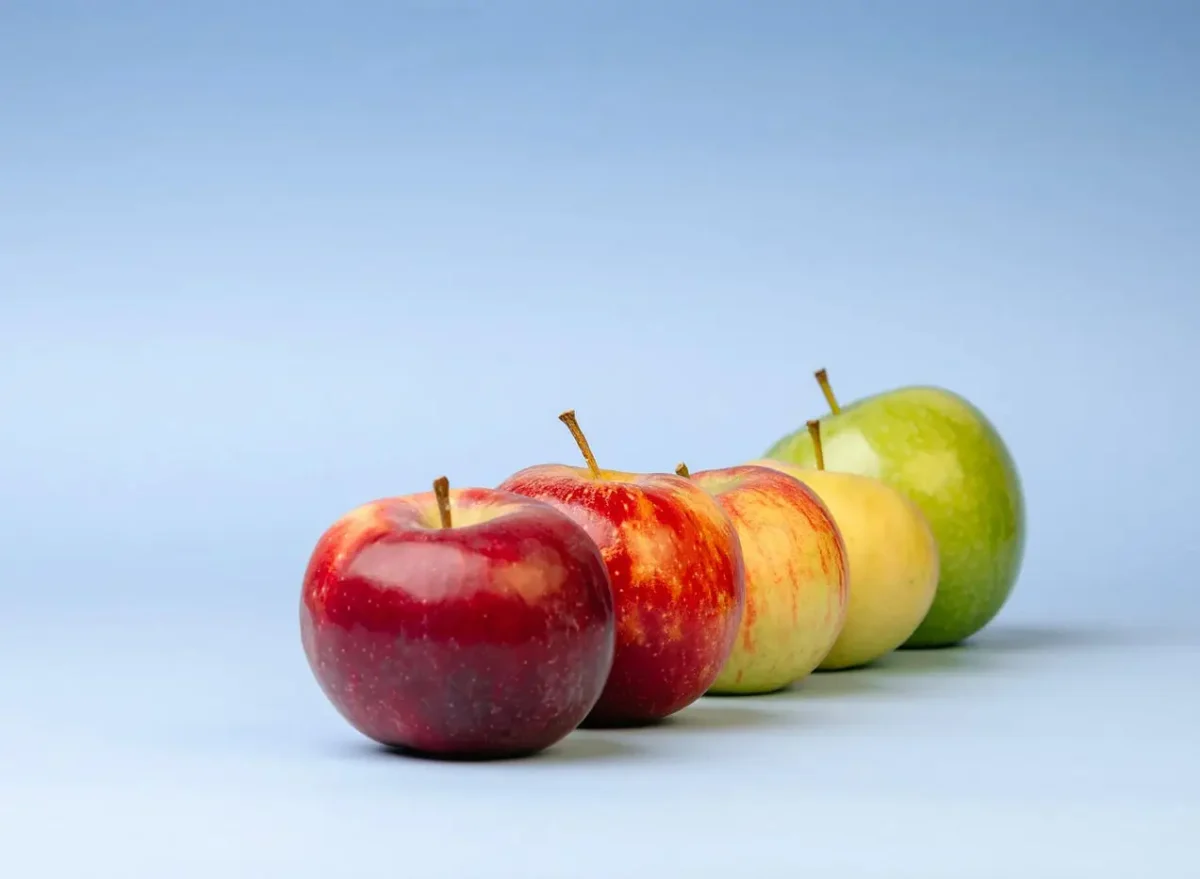An apple a day keeps the doctor away,” goes the old adage. Apples are undoubtedly a nutritious and delicious fruit packed with vitamins, fiber, and antioxidants that offer a plethora of health benefits. However, like anything in life, moderation is key. While apples can be an excellent addition to a balanced diet, consuming them excessively can have some unexpected disadvantages that may compromise your health. In this article, we will explore the potential downsides of eating too many apples and how to enjoy them in a healthy way.
- Dental Health
Apples are naturally sweet, and they contain natural sugars like fructose. When consumed excessively, the sugars in apples can contribute to dental problems. Frequent consumption of apples without proper dental hygiene can lead to tooth decay and cavities. The high acidity of apples can erode tooth enamel, making teeth more susceptible to damage. To mitigate this, it’s advisable to rinse your mouth with water or brush your teeth after eating apples to remove residual sugars and acids.
- Digestive Issues
Apples are rich in dietary fiber, which is generally beneficial for digestion. However, overindulging in apples can lead to gastrointestinal discomfort. Excessive fiber intake can cause bloating, gas, diarrhea, or constipation in some individuals. To avoid these issues, it’s essential to incorporate a variety of fiber sources into your diet and not rely solely on apples.
- Risk of Weight Gain
While apples are relatively low in calories compared to many other snacks, they still contain calories. Consuming too many apples without considering your overall calorie intake can lead to weight gain. Additionally, some people may mistakenly believe that they can eat unlimited quantities of apples, leading to excess calorie consumption. To maintain a healthy weight, it’s crucial to consume apples in moderation as part of a balanced diet.
- Blood Sugar Management
For individuals with diabetes or those at risk of blood sugar spikes, excessive apple consumption may be a concern. Apples have a moderate glycemic index (GI), meaning they can cause a gradual increase in blood sugar levels. However, if consumed excessively, they can still lead to undesirable blood sugar fluctuations. People with diabetes should monitor their apple intake and consult with a healthcare professional for guidance on managing their diet.
- Allergic Reactions
While rare, some individuals may experience allergic reactions to apples. These reactions can manifest as itching, swelling, hives, or digestive distress. If you suspect you have an apple allergy or have experienced such symptoms, it’s essential to consult an allergist for a proper diagnosis and guidance on managing your diet.
Apples are undeniably a nutritious and wholesome fruit that offers numerous health benefits when consumed in moderation. However, overindulging in apples can lead to dental issues, digestive discomfort, potential weight gain, blood sugar management challenges, and rare allergic reactions. To enjoy the advantages of apples without experiencing these disadvantages, it’s crucial to incorporate them sensibly into a well-balanced diet. Remember that variety is key when it comes to nutrition, so diversify your fruit intake to ensure you receive a wide range of nutrients while avoiding the potential downsides of excessive apple consumption.
